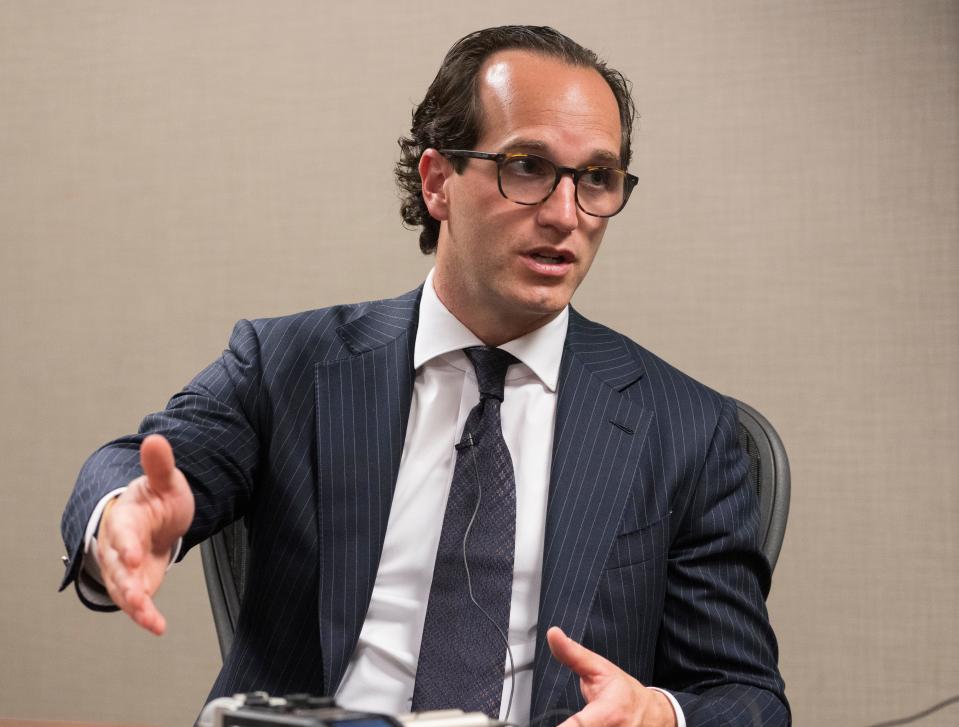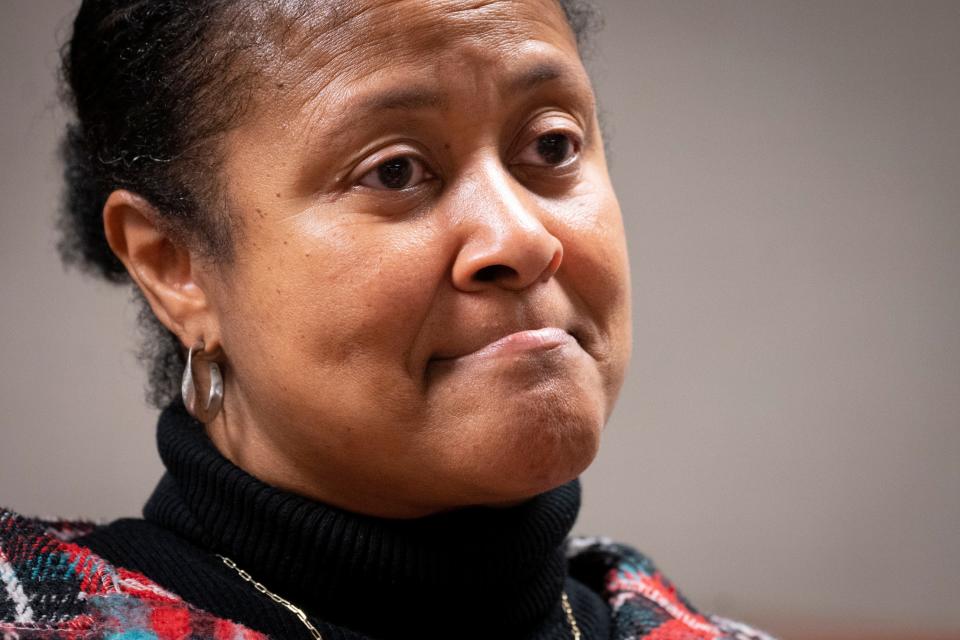Exoneration in 1987 Newport murder leads to record-setting $28M settlement
- Oops!Something went wrong.Please try again later.
After decades of insisting its police officers arrested the right man in a 1987 stabbing death, the city of Newport has settled a wrongful conviction case with William Virgil’s family for a record-setting pretrial amount of $28 million.
The figure represents $1 million for every year Virgil spent in prison for the stabbing death of 54-year-old Retha Welch, a Newport grandmother and prison minister killed in her apartment. The case was featured in season 2 of The Enquirer's podcast "Accused." This is the second defendant highlighted in Accused with a recent legal victory: Last week, the Ohio First District Court of Appeals denied Hamilton County prosecutors' efforts to reverse a judge's decision granting a new trial to Elwood Jones, who served nearly three decades on Ohio's death row.
Unlike Jones, Virgil didn’t live long enough to enjoy his latest legal victory. He died in January 2022 in a Cincinnati hotel room, where he’d stayed the night before a medical checkup just shy of his 70th birthday. He hadn’t felt well since his release from prison.
Listen to 'Accused':William Virgil awaits decision in civil lawsuit
Virgil had maintained his innocence from the start, eventually winning a motion to have DNA evidence tested. Of three semen samples found inside Welch’s body, none matched Virgil, leading to the 2015 overturning of his conviction. Campbell County Prosecutor Michelle Snodgrass brought the case again before a grand jury, which declined to indict Virgil to face a second trial. Snodgrass ultimately did not refile charges, effectively exonerating Virgil in the crime, though officials still haven't publicly stated they agree he is innocent.
“We’ve spent the last half decade trying to show how William was framed for a crime he didn’t commit,” said attorney Elliot Slosar of Loevy & Loevy, a Chicago civil rights firm. “Our team did dozens of depositions and we got documents from all these police departments that were never turned over, and eventually, we were granted a trial.”
Settlement likely less than a jury would award, attorney says
The defendants in the case – which included the city of Newport, as well as several police officers – had appealed the trial order, but testimony throughout the depositions highlighted egregious conduct in the investigation that likely would have hurt the city’s case before a jury. For example, one former police officer testified that he had paid a jailhouse informant who’d told the original jury that he’d heard Virgil confess to killing Welch. The officer had never previously disclosed paying the informant, who insisted on the stand he was testifying to keep women safe from Virgil. That informant later recanted his testimony and swore in an affidavit that he'd been paid to lie by the investigator.

Slosar said that by settling the case pretrial, Newport residents and insurers were spared “catastrophic exposure” when compared with the amount of money a jury might have awarded after trial.
For example, a pair of North Carolina brothers in 2021 were awarded $75 million by a jury who determined they'd been wrongfully convicted of raping and killing an 11-year-old girl in 1983. Slosar said the $28 million in Virgil's case appears to be the largest pretrial settlement on record.
As explored in "Accused," detectives in Welch's death ignored several investigative avenues, including one centering on a violent man named Isaac Grubbs, who a witness said had argued with Welch over the phone the day of her death. Grubbs was killed later that night when Newport police shot him after they said he lunged at officers with a knife. Welch’s body wasn’t discovered until a few days later. Tips that subsequently tied the knife-wielding Grubbs to Welch’s stabbing death were not investigated by detectives, who had quickly decided Virgil was the killer. The knife Grubbs had been wielding, which could have been forensically tested to determine if it was the same knife used to fatally stab Welch, was destroyed by officials.
Police officers’ theory was rooted in Virgil having met Welch as a prison minister. As she did with other inmates, she invited Virgil to stay at her Newport apartment after his release from prison. She and Virgil’s friendship had sometimes been intimate. The only physical evidence tying Virgil to the crime scene was his fingerprint on a lamp. He was adamant that he had nothing to do with her death.
William Virgil's family continues to grieve
Because Virgil died without a will, the $28 million settlement will be divided among nearly a dozen family members, including his cousin and longtime supporter, Jeri Colemon, who said she’s still grappling with his death.
“We got six years,” said Colemon, referring to the period of time between Snodgrass' decision not to retry the case and Virgil's sudden death. “I know he’s not hurting anymore.”

Still, she said Virgil’s death is especially heartbreaking because it was preventable. She’d been encouraging Virgil to see doctors for his physical ailments, including cardiac and renal problems, but his decades in prison made navigating Medicaid and Medicare difficult because he had no work history or pay stubs.
“He hadn’t put anything into Medicare, so therefore he couldn’t get Medicare,” Colemon said.
Not only did Virgil die the night before seeing a doctor, but Colemon said that the following week she “got all the documents, his health cards, he got approved for Medicaid. And it was unbelievable. We had been working on it for two months.”
By the time she learned she’d prevailed over the copious red tape, Colemon was already planning her cousin’s funeral.
“I get choked up,” she said. “As much as he had gone through and survived and to (die from) something medical that we have systems in place for, but there was that little slit, that caveat.”
She said her faith is what keeps her focused on the positive, as well as her determination to try to make sure the settlement money is used in ways Virgil would have wanted.
“I know there are some things he wanted to do for people to thank them for supporting his family members that he wasn’t here for,” Colemon said. “He missed his father’s funeral. There were a lot of people that took care of his dad because he wasn’t there.”
Colemon said Virgil also wanted to help support the Kentucky Innocence Project, lawyers from which worked with Loevy & Loevy to help pave the way for his release from prison.
Loevy & Loevy isn’t done suing on Virgil’s behalf. The firm is also pursuing suits against the cities of Cincinnati and Norwood, whose detectives had worked with Newport in investigating Welch’s case as part of a possible series of homicides potentially committed by the same person. Virgil’s original lawyers weren’t told of any suspected connections between Welch’s death in Newport and a few others around the same time in nearby cities.
This article originally appeared on Cincinnati Enquirer: Overturned conviction in 1987 murder results record $28M settlement

